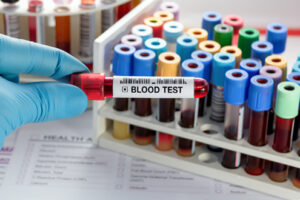 Biomarkers are genes, molecules, or other features present in a person and/or in a person’s tumor that tell doctors something about a person’s health condition. Biomarkers in MBC include the estrogen receptor (ER), progesterone receptor (PR), and HER2, as well as mutations in genes such as ESR1 and PIK3CA. In MBC, biomarkers can predict how likely the cancer is to respond to treatment or progress and are used to help doctors and patients select the right treatment.
Biomarkers are genes, molecules, or other features present in a person and/or in a person’s tumor that tell doctors something about a person’s health condition. Biomarkers in MBC include the estrogen receptor (ER), progesterone receptor (PR), and HER2, as well as mutations in genes such as ESR1 and PIK3CA. In MBC, biomarkers can predict how likely the cancer is to respond to treatment or progress and are used to help doctors and patients select the right treatment.
Biomarker testing is important for everyone with MBC. You may be wondering how you can get biomarker testing, especially if your doctor doesn’t mention it or if you have concerns about the cost. Biomarker testing may be paid for by insurance, and some companies that perform biomarker testing have programs that provide financial assistance to patients.
Also, a clinical trial may be a way to get biomarker testing for free. Some clinical trials are testing whether a specific biomarker is useful for selecting treatment, monitoring treatment response, or watching for disease progression and in what groups of patients. In other clinical trials, biomarkers that were shown to be useful in previous studies are used as eligibility criteria for participation in a trial.
Read below to learn more about when to have biomarker testing, how to have it paid for, and clinical trials that are studying biomarker testing.
Biomarker Testing for MBC
- Living Beyond Breast Cancer/No One Missed: This introduction to biomarker testing in MBC includes information on when to talk to your doctor
- Living Beyond Breast Cancer/No One Missed: This discussion guide includes important questions to ask your doctor about biomarker testing in MBC
- Living Beyond Breast Cancer (video): This video describes some ways of paying for biomarker testing
- Metastatic Breast Cancer Alliance: Biomarker testing in MBC should be done at diagnosis and when the cancer progresses
MBC Clinical Trials
- Metastatic Trial Search: Trials for Genetic and Biomarker Testing
Last Modified on December 2, 2024
